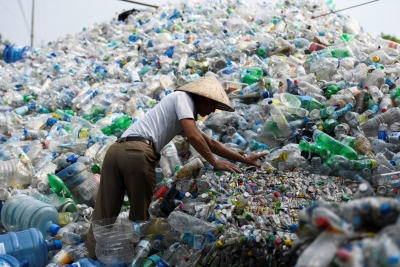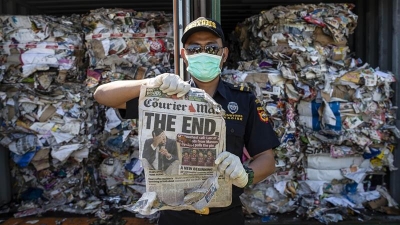Why did China stop taking recycling?

China was the world’s biggest importer of scrap plastic, receiving close to half of the world’s global plastic waste for three decades. But serve pollution concerns prompted the country to impose a ban on plastic waste import abruptly in January 2018. This shook up the global garbage/scrap trade. With the primary importer of plastic waste out of the market, exporting countries began sending increasing volumes of scrap to Southeast Asia, with Malaysia emerging as the number one importer. Vietnam, Thailand and Indonesia also picked up a lot of the slack. Malaysia’s imports rose five-fold and the Philippines’, three-fold.
The recycling crisis triggered by China’s ban could have an upside, experts say, if it leads to better solutions for managing the world’s waste, such as expanding processing capacities in North America and Europe, and spurring manufacturers to make their products more easily recyclable. Above all, experts say it should be a wake-up call to the world on the need to sharply cut down on single-use plastics.
Over the coming decade, as many as 111 million tons of plastics will have to find a new place to be processed or otherwise disposed of as a result of China’s ban, according to Brooks and University of Georgia engineering professor Jenna Jambeck. However, the places trying to take up some of the slack in 2018 tended to be lower-income countries, primarily in Southeast Asia, many of which lack the infrastructure to properly handle recyclables. Many of those countries were quickly overwhelmed by the volume and have also now cut back on imports.
Picture Credit : Google
